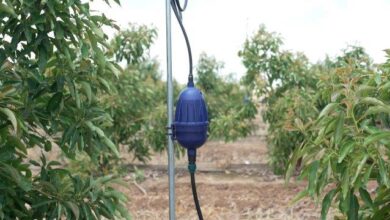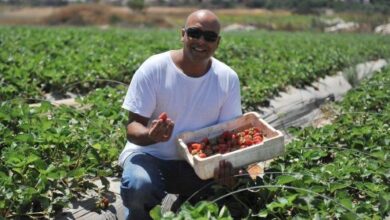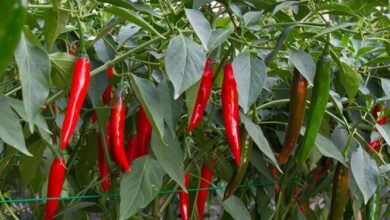Metzer presents a solution to the effects of hot and dry climates on avocado orchards
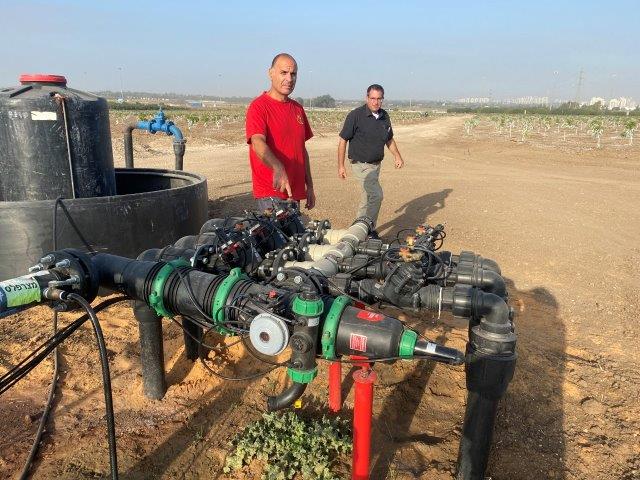
global warming has been at the crux of public debate in recent years. climate change affects all areas of life and farmers have to deal with the effects of extreme and fluctuating weather conditions on a daily basis.
for avocado growers, in particular, these intense conditions have dramatic implications, as avocados are very sensitive to the effects of a hot and dry climate in the spring months, when the budding directly affects the amount of crop.
only avocado growers who have witnessed the perennial growing process, from planting trees to picking and marketing the fruit, can attest to the change in environmental conditions over the past two years, which includes rising temperatures and declining humidity, as well as its impact on crop yields and profitability.
metzer presents a solution for israeli avocado farmers at kibbutz nachshonim
recently, following a long and prolonged hot, dry spell, farmers at kibbutz nachshonim’s avocado orchards identified a problem. even though the rate of flowering was high, the weather caused a decrease in humidity to a rate of only 27%. moisture rates caused almost all buds to drop, resulting in a drastic decrease in the quantity of fruit, and a subsequent sharp decline in revenue.
roni yaakobi, head of the avocado fields at kibbutz nachshonim, that boast the hess, reed and puerta species spreading over an area of 850 dunams, including large areas of new plantations, ventured out to find possible solutions to the problem. yaakobi recalled that during a visit to nicaragua several years earlier, he noticed that it rains once a day, cleaning the air and the trees, lowering the temperature and adding moisture to the leaves.
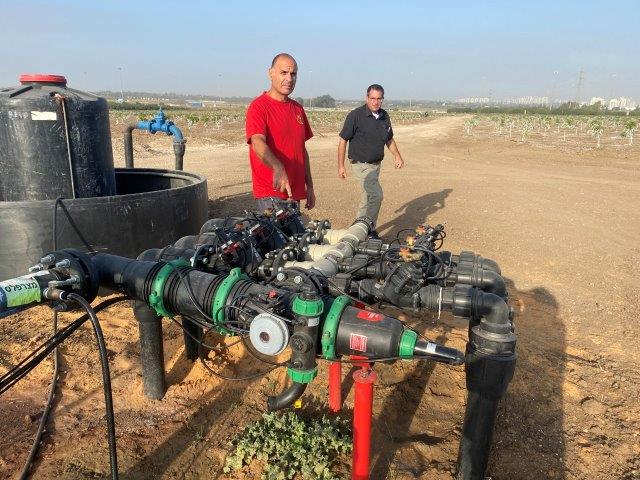
shaul & kobi
in an attempt to convert the natural situation in nicaragua into a practical solution, yaakobi shared the problem with representatives of mezter, a company that supplies irrigation equipment to kibbutz orchards.
metzer has been providing nachshonim with consultation services for many years, so it was only natural that its professionals would undertake this challenge and, together with yaakobi, search for an optimal solution for the orchard’s irrigation system.
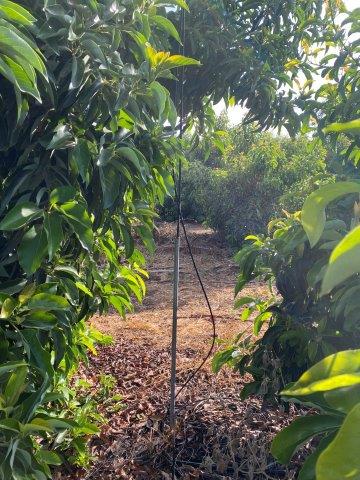
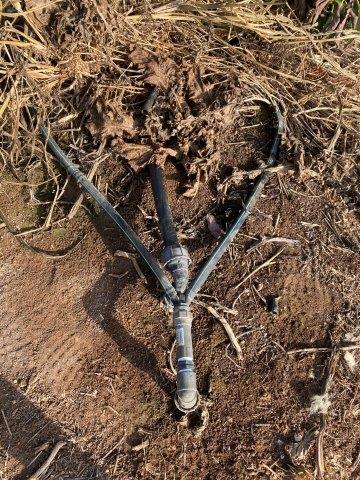
the most innovative and effective solution found was to add an overhead watering line over the trees, matching the supply rate of the existing irrigation system, in order to cool the orchard in the heat of the day, from early morning until late afternoon, protecting the fruits from the hot, dry climate. this actually meant the use of a double irrigation system; a drip irrigation system on the ground and another above the trees.
in order to test the efficiency of the system, a trial was initially run in an existing orchard. the irrigation system was added to the existing drip system, by connecting an additional pipe to a dividing line and twice a day switching between the taps, to open and close the system (switching between irrigation and cooling).

the trial was carried out on an area of 7 dunams and it was found that the system did, in fact, lead to a decrease in temperature of 5-6 degrees celsius and a significant increase in yield: 2.3 tons of produce was collected in the trial plot, in comparison to only 300 kilograms of fruit in the control plot (without a cooling system).
results obtained in the trial plot were unequivocally clear. the double system did its job. the avocado team at kibbutz nachshonim installed a new irrigation system in the old plot, as well as another double system in a new, 400-dunam orchard of hess avocado trees, but this time the system was installed already from the planting stage.
a double irrigation procedure allows for greater flexibility, adjusts capacity and enables separate, easy, convenient and accurate operations, directly from the computerized irrigation system.
the new system places sprinklers every 9 meters on each third row, rising above the height of the trees and providing optimal coverage and irrigation in a year of extreme and prolonged heat.
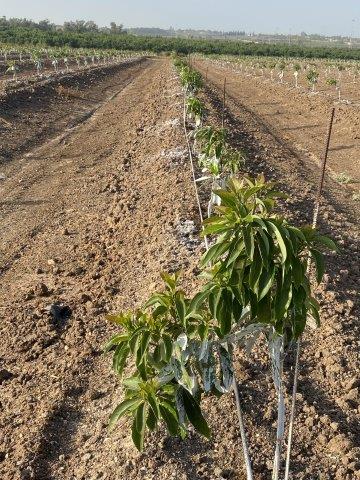
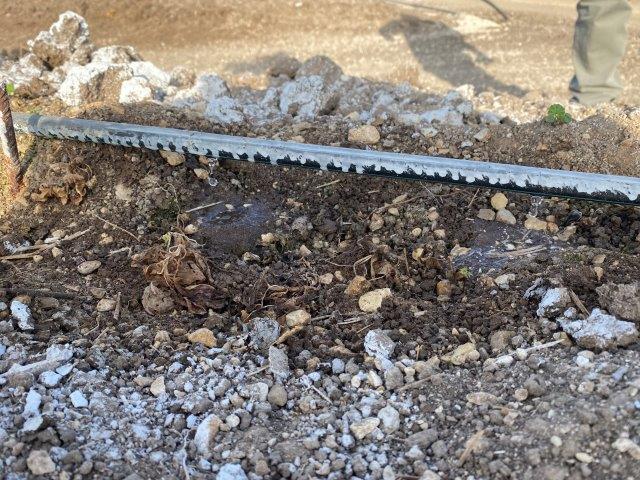
the use of the dual system was made possible due to the fact that avocado orchards in the area are irrigated with fresh water. it is forbidden to irrigate fruit treetops with treated waste water (effluent water) due to public health regulations, however, frugal measures should be taken when irrigating with fresh water. it is also advisable to consider routine maintenance work, such as checking for faults along the irrigation line and pruning plants to ensure that the trees do not grow beyond the height of the sprinklers. however, according to yaakobi, the large crop that resulted from the cooling process justifies this investment.
insofar as the contribution of the irrigation system to the growth of avocados has become clear, it turns out that bees provide additional assistance to this process. bees in about 200 beehives in the area are responsible for the pollination of trees and for carrying the pollen from male trees to female trees.
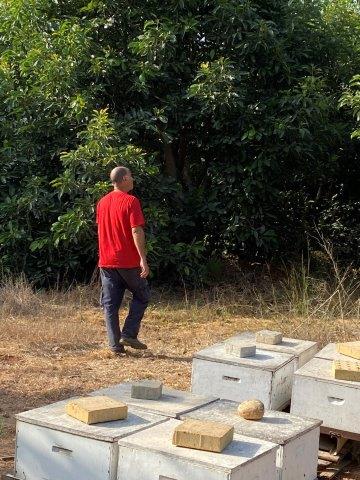
the double irrigation system installed in the avocado orchards of kibbutz nachshonim are proof of metzer’s advantages as an irrigation company with extensive experience and knowledge in various types of orchards, a company that can tailor solutions to each customer, according to his needs and the conditions of his fields and crops.
therefore, considering the extreme weather conditions around the world, metzer is well prepared and ready to continue providing solutions to the diverse services, experience and knowledge it has accumulated over the years in a variety of situations and crops in all parts of the world.
for more info: info@metzerplas.com
or visit our web site : https://www.metzer-group.com/


